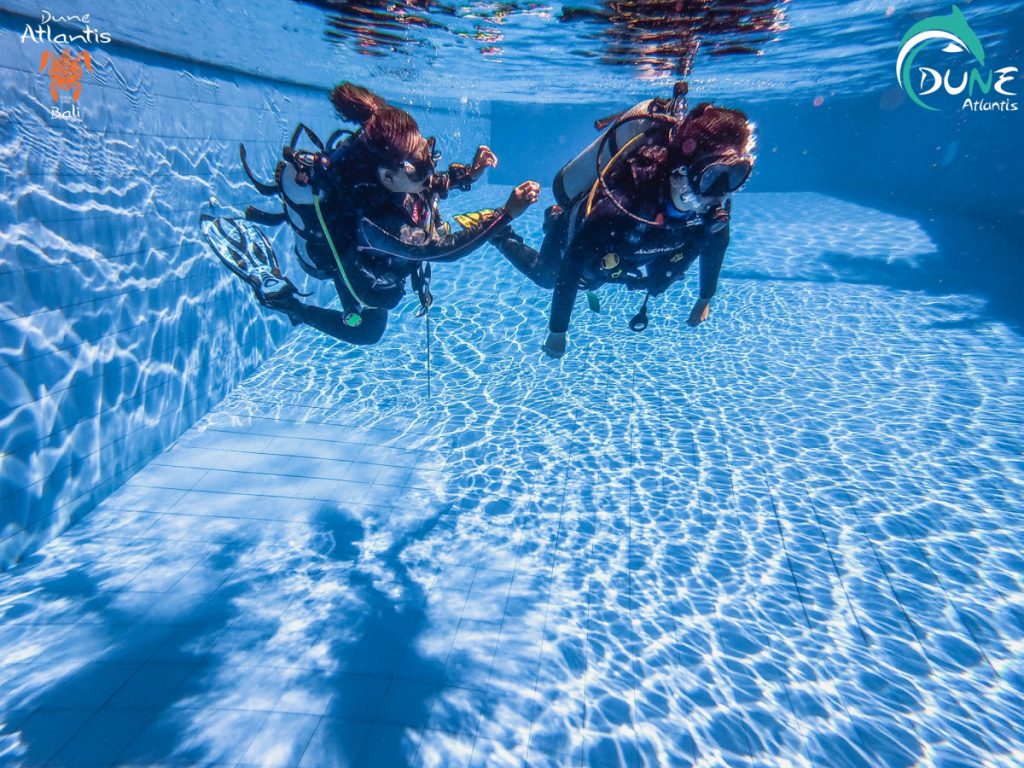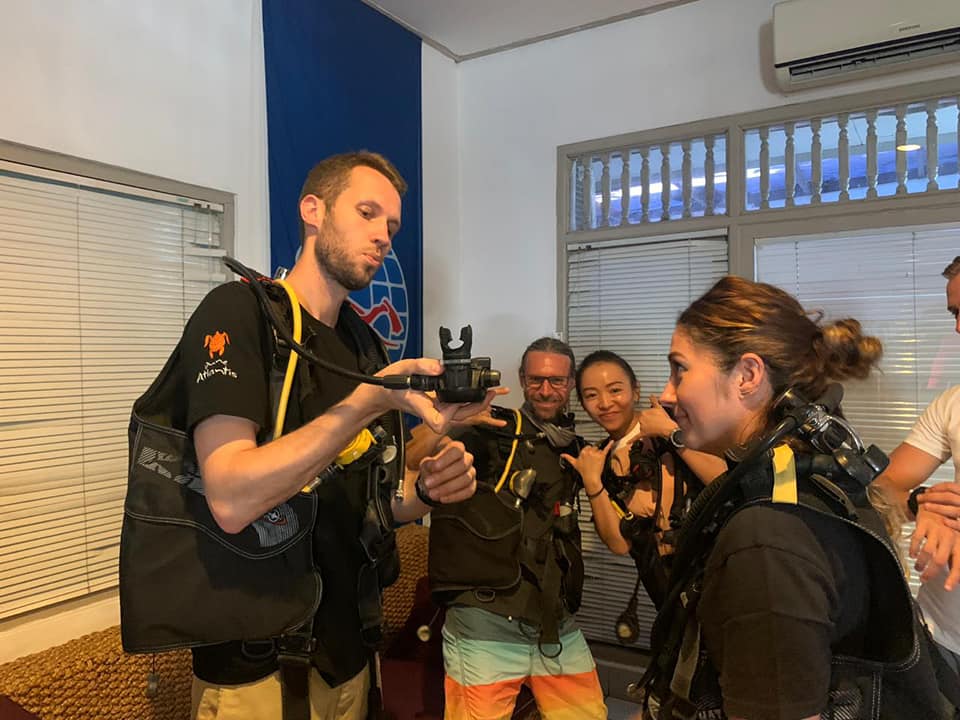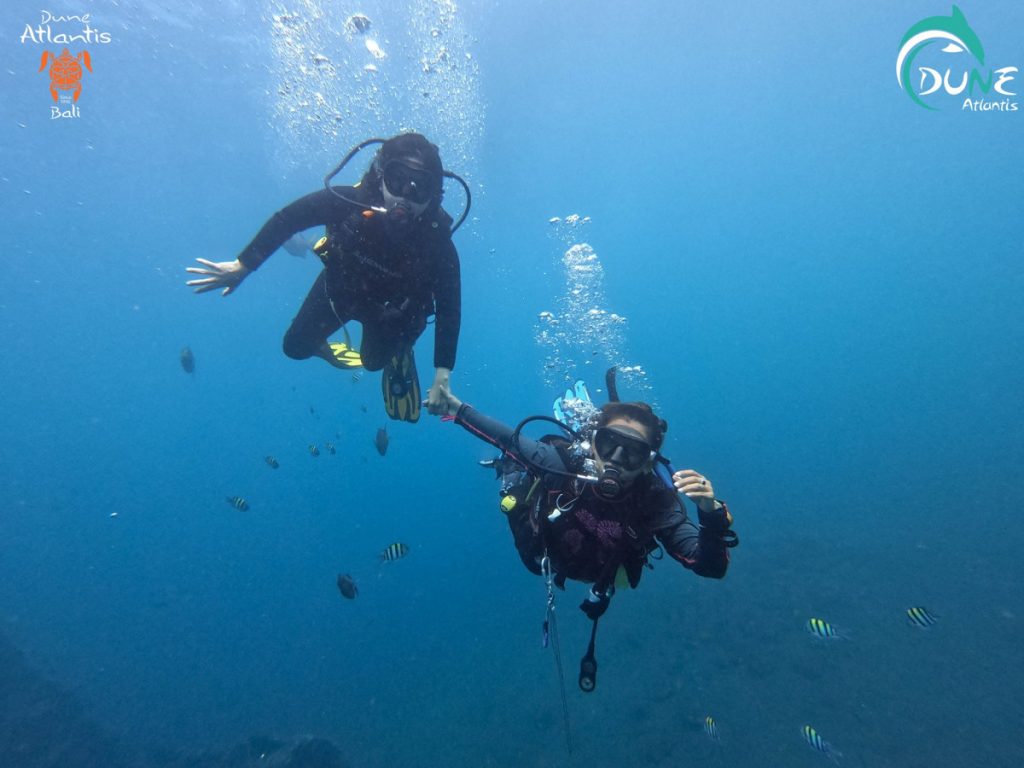When you are getting serious about scuba diving, you will take a scuba diving course to obtain the certification so that you can dive in many beautiful destinations in the world. However, scuba diving is not an easy matter—and so is the test. It can be quite intimidating and with all complicated techniques and theories to remember, one is prone to making mistakes. Don’t worry. Here we want to help you to ace your first diving certification for beginners and do the best on it.

Best Way to Pass Diving Test for Beginners
The PADI course is divided into four parts; homework, classroom work, pool work, and some open water dives. You will get some book reading to do at home so you could get a good grasps on what is in the theory. Then you will put that theories into real practice in confined water or pool. You will learn with your instructor, learn your mistakes, and perfecting your skills. When you are ready, you will practice everything you have learned in an open water session.
One of the best diving tips for beginners is by actually starting weeks before the classroom starts. Upon registration, you will be given some reading materials which comes with DVD alongside the book. The DVD is set out in the same order with the books to support comprehension of the texts. Video explains a concept better especially on complicated things than a text or still pictures. Starting on the individual learning material early means you can take your learning time at your own pace, re-watching things until you grasp a full comprehension. Get on early so you have enough time to come back on things you don’t quite understand. You can also take notes and ask it later to your instructor during the classroom session.
Listen to what your instructor is saying

Scuba diving is a recreation that involves a lot of complicated techniques and theories related to the law of nature. Everything in scuba diving is done slowly and methodically. That’s why if your instructor is telling you something, then there’s probably a reason behind it. Listen carefully what your instructor said and believe in what they say. There might be reasons behind it that you don’t know just yet. One of the best diving tips we could give to beginners is to try doing things the way your instructor does; sometimes it’s actually easier.
Also, don’t rush on your skills. Many beginners are too eager to finish something and move quickly to the next subject. If you are rushing and doing it wrong, the instructor would actually make you doing it again and again until you are fully competent in this subject. That is to say, it’s better to take it slow and do it right in the first time. Practice your skills in the surface first and ask your instructor to watch and then they will tell you if you are doing it right or wrong.
Pay full attention to your instructor

Scuba diving could be quite full of distractions. Especially when you are out in the ocean, everywhere you look there will be something to distract your attention. This is really important especially for diving beginners. Meanwhile, your instructor can be desperately try to catch your attention because probably you are drifting to the deep or something. So always pay full attention to your instructor all the time. Also, master your knowledge about hand signal as you will be using it all the time underwater. Your instructor will communicate all the important things with hand signal in open water diving.
Best diving technique to master first for beginners: buoyancy
Part of successfully passing your test is mastering buoyancy and this particular diving technique is very important for beginners. You need to take your time to practice your buoyancy skills in the pool. Get used to the delays and the cycle of breathing. Regulated breathing and buoyancy are essentially the essence of scuba diving technique. Remember the basic: you float up when you inhale and you sink down when you exhale. It’s a natural cycle that might make some time to get used to, but with a lot of practice it would be just as easy as breathing in the surface. Most beginners make mistakes for relying on the inflate and deflate button on BCD to descend and ascend while it should only be used sparingly. Not only that it’s a waste of oxygen, it’s also dangerous and can be harmful. Pro tip: Use your inflator only at the surface and for minor adjustment underwater.
More Diving Stories:
Benefits of Scuba Diving You May Have Never Been Told
Travel Destinations – Best Diving Sites in Indonesia
Be Proactive, Ask Questions
Scuba Diving instructors are basically the experts on this field. They focus their life on scuba diving and building a career on that, knowing almost every tiny bits about equipments, techniques, and other dive-related things. However, with limitation of time, there just so much they can cover in class. Be a proactive students and ask about anything. They would be more than happy to explain things they don’t get to tell during the course.
In the classroom and the swimming pool, you can pop up anytime and chat or ask questions with your instructor. But once you hit the open water and reach certain depth, you actually have to stay there and not be able to ask anything.
So that’s it! You will pass your course with flying colours!